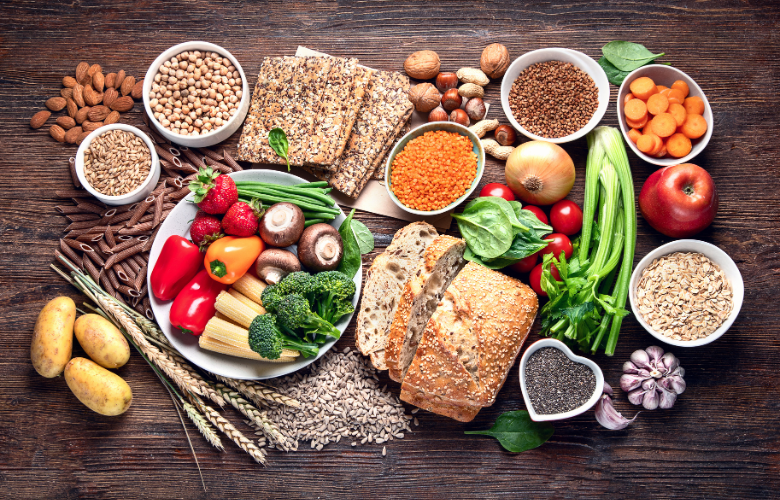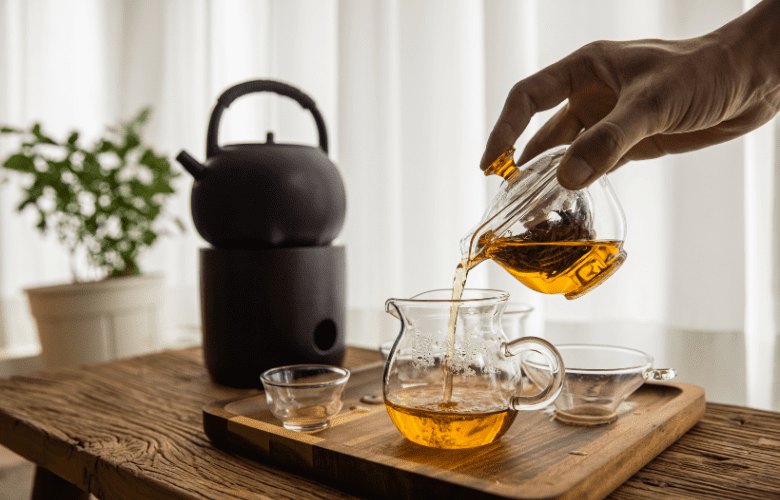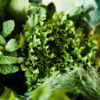Managing Diverticulosis and Diverticulitis with TCM & Functional Medicine
Managing diverticulosis and diverticulitis involves more than simply addressing gut symptoms; it affects your overall well-being. These conditions can cause significant discomfort, but rather than focusing solely on symptom relief, it’s essential to address the root causes. Functional medicine and Traditional Chinese Medicine (TCM) offer powerful, holistic approaches, introducing practical lifestyle changes to restore gut balance and reduce flare-ups. Let’s explore how these methods provide comprehensive solutions for managing diverticulosis and diverticulitis effectively
DEFINING DIVERTICULOSIS & DIVERTICULITIS
Diverticulosis and diverticulitis are related conditions that affect the digestive system, particularly the colon. Understanding their differences is essential for effective management and prevention.
Diverticulosis occurs when small pouches, known as diverticula, form in the walls of the colon. These pouches develop when weak spots in the colon lining cannot handle increased pressure. Factors like a low-fiber diet and straining during bowel movements often contribute to this condition.
Most people with diverticulosis don’t experience symptoms. They may not realize they have it until a routine screening reveals it. Although diverticulosis isn’t harmful by itself, it can lead to complications if you leave it untreated.
In contrast, diverticulitis happens when one or more diverticula become inflamed or infected. This inflammation can occur when food particles or bacteria get trapped in the pouches. Common symptoms include abdominal pain—typically on the lower left side—along with fever, nausea, and changes in bowel habits.
THE FUNCTIONAL MEDICINE APPROACH
Functional medicine views diverticulosis and diverticulitis as signs of underlying issues within the body. This approach emphasizes the interconnectedness of various systems, particularly the digestive system. It also shows how our lifestyle choices and eating habits influence overall health.
Here are seven therapies designed to promote healing and enhance digestive health:
1. Dietary Fiber
Fiber adds bulk to your stool, making it easier to pass. This action reduces strain on your colon and promotes a healthier gut overall. By increasing your fiber intake, you can enjoy more regular bowel movements.
The American Heart Association recommends eating a variety of food fiber sources. Aim for a balanced mix of soluble and insoluble fiber, as both offer unique benefits. For instance, soluble fiber in oats and beans helps regulate digestion, while insoluble fiber in whole grains and leafy greens adds bulk to your stool.
2. Hydration
Drinking enough water helps soften your stool, reducing the risk of constipation. Staying properly hydrated ensures your digestive tract functions efficiently. It also helps your body absorb nutrients effectively.
Aim to drink at least eight glasses of water daily, or more if you’re active or live in a hot climate. You can also increase your fluid intake by including water-rich foods in your diet, such as cucumbers, oranges, and watermelon.
3. Probiotics and Prebiotics
Probiotics are live, beneficial bacteria that help balance your digestive system by crowding out harmful bacteria. In contrast, prebiotics are types of fiber that nourish these good bacteria, allowing them to grow and thrive. Together, they help maintain a healthy gut microbiome.
To boost your intake of probiotics, incorporate foods like yogurt, kefir, sauerkraut, and kimchi into your meals. For prebiotics, focus on fiber-rich options such as garlic, onions, bananas, and whole grains.
4. Stress Reduction
Chronic stress can disrupt your gut health by triggering inflammation and interfering with digestion. When you’re stressed, your body shifts into “fight or flight” mode. This slows digestion and may lead to symptoms like constipation, cramping, or flare-ups.
To combat stress, incorporate relaxation techniques into your daily routine. Engage in activities like meditation, deep breathing, yoga, or regular walks to help calm your mind and lower stress levels.
5. Anti-inflammatory Diet
An anti-inflammatory diet helps reduce the swelling and irritation in your gut. This is crucial if you’re dealing with diverticulitis or want to prevent flare-ups. Inflammation in your digestive system can make symptoms worse and lead to complications.
With guidance from a qualified practitioner, focus on incorporating foods rich in omega-3 fatty acids, such as salmon, flaxseeds, and walnuts, as they help combat inflammation. Plus, include plenty of fruits and vegetables, especially leafy greens and berries, for their powerful antioxidant properties.
6. Supplements
Supplements can provide targeted support to help your body heal and function better. Nutrients like L-glutamine and zinc carnosine can help repair the gut lining, reduce inflammation, and promote overall digestive health.
However, avoid self-prescribing. Instead, work with a functional medicine practitioner to determine the right supplements and dosages tailored to your needs. They can provide guidance on what will work best for your condition and ensure you use supplements safely and effectively.
7. Natural Antimicrobials
Natural antimicrobials can help combat harmful bacteria in your gut, especially during a diverticulitis flare-up. Ingredients like garlic, oregano oil, and berberine possess properties that help reduce infection and inflammation.
Before using natural antimicrobials, consult with a functional medicine practitioner. They can guide you in selecting the right type and dosage to manage your symptoms effectively while minimizing potential risks.
THE TRADITIONAL CHINESE MEDICINE APPROACH
TCM views health as a balance of energies, with Qi (“chee”) being the vital energy flowing through the body. Practitioners link diverticulosis to a deficiency in Spleen Qi and an accumulation of dampness in the colon. When diverticulitis occurs, it’s interpreted as a buildup of heat toxins and stagnant energy.
To restore this balance, TCM offers various therapies including the following:
1. Herbal Remedies
Certain herbs can support digestion and reduce inflammation in the body. For example, Huang Qi (astragalus) and Bai Zhu (white Atractylodes) strengthen the digestive system and enhance energy flow. These herbs boost the function of the Spleen and Stomach, helping to prevent conditions like diverticulosis from worsening.
To use these remedies effectively, collaborate with a qualified TCM practitioner. They can create a personalized herbal formula tailored to your unique needs and symptoms. This ensures that the treatment is both safe and effective for you.
2. Dietary Adjustments
In TCM, dietary changes aim to strengthen your digestive system and maintain the balance of Qi. Focus on consuming warm, cooked foods such as soups, stews, and steamed vegetables. These dishes aid digestion and help prevent energy stagnation in the digestive tract.
Avoid cold, raw foods and heavy, greasy meals; they can slow down digestion and burden your Spleen and Stomach. Instead, incorporate specific nourishing foods like sweet potatoes, ginger, and brown rice. These warming foods promote better energy flow and support overall digestive health.
3. Acupuncture
Acupuncture effectively manages diverticulosis and diverticulitis by promoting Qi (energy) flow and reducing inflammation in the digestive system. By targeting specific acupuncture points, this practice helps rebalance your body’s energy, improve digestion, and alleviate discomfort.
If you’re considering acupuncture, choose a licensed practitioner who can evaluate your symptoms and design a personalized treatment plan. Regular sessions help minimize flare-ups and support long-term gut health as part of a holistic strategy for managing these conditions.
THE BOTTOM LINE
Managing diverticulosis and diverticulitis doesn’t have to feel overwhelming. By integrating functional medicine and TCM principles, you can tackle the root causes of these conditions. With practical lifestyle changes and a focus on balance, you can take control of your digestive wellness and prevent future flare-ups. Contact us today to discover how functional medicine or TCM can support your journey toward better health.












